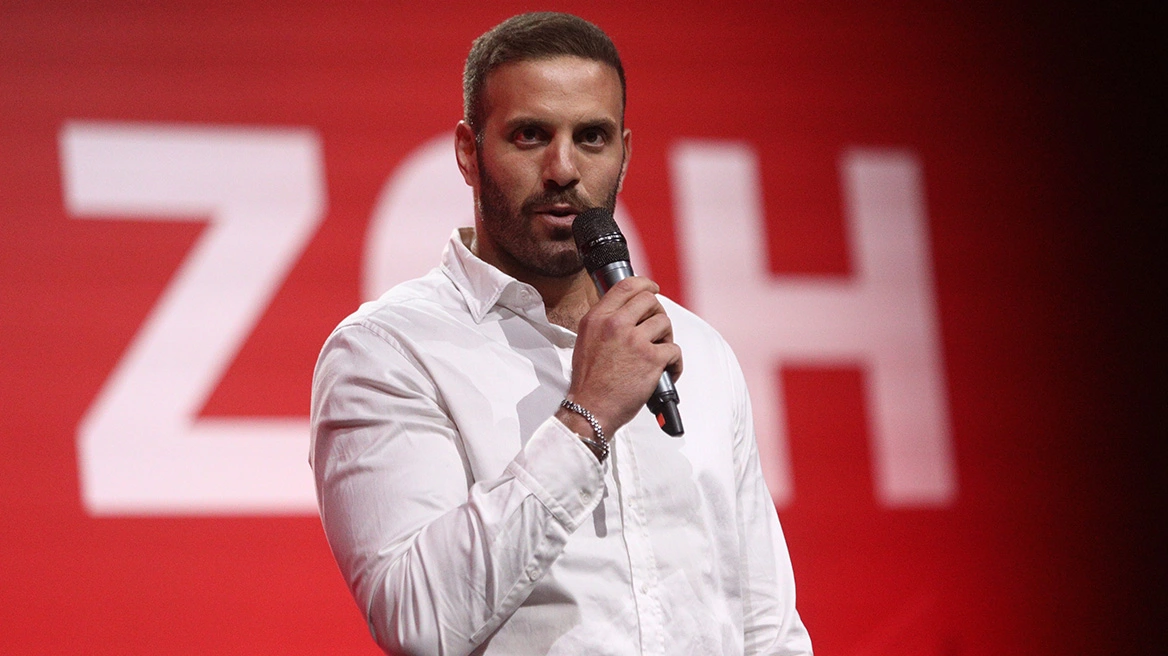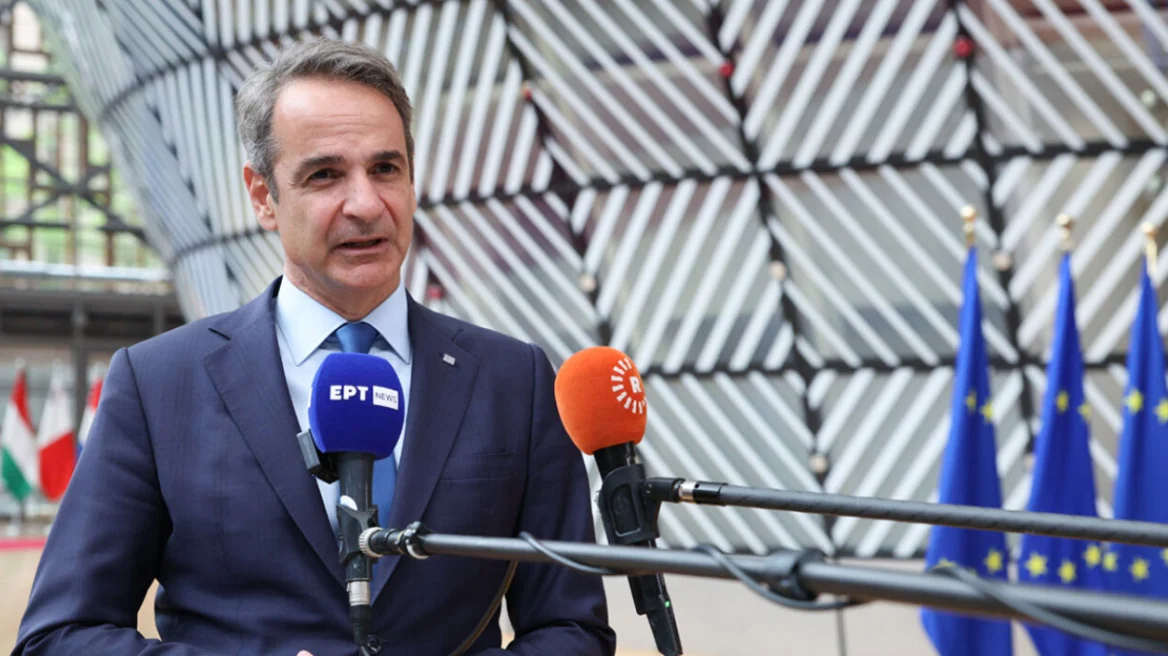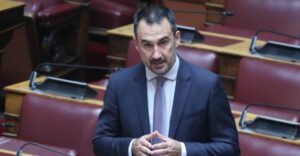With a cohesive platform for progressive governance and influential state and political figures in attendance, the two-day International Conference on Peace and Sustainable Development, organized by the Alexis Tsipras Institute, concluded yesterday. Against the backdrop of the recent European election results, former Prime Minister and President of the SYRIZA Progressive Alliance, Alexis Tsipras, unveiled his plans and opened a dialogue among domestic progressive forces, reinvigorating the vision for a unified Center-Left.

Key Points of the Conference
The strategic move by Mr. Tsipras in the broader progressive space was prompted by the performance of SYRIZA PS, PASOK-Movement for Change, New Left, and Petros Kokkalis’s Kosmos in the recent elections. According to Tsipras, this performance marks “a turning point” concerning the discrediting of political policies and their executors.

Addressing Responsibilities and Forging Alliances
“The responsibilities for this development concern us all. The entire political system, with significant but not exclusive responsibilities resting on the right-wing government,” observed Alexis Tsipras. He emphasized that “progressive forces cannot remain apathetic in these circumstances nor should they neutralize each other with useless conflicts.” Highlighting a statement by former French President François Hollande about the necessity for broad alliances to combat the far right, Tsipras encouraged the adaptation of the French model to Greek politics.

Establishing a New Democratic Balance
Guided by the French perspective, Tsipras urged domestic progressive forces to take bold initiatives to restore governance potential and political balance. He emphasized the need for a “new democratic balance” that strengthens the rule of law, parliamentary oversight, and institutional safeguards against unchecked executive power. This call was made in the presence of the President of the Republic, Katerina Sakellaropoulos, and her predecessor, Prokopis Pavlopoulos.
Restoring Democratic Balance
According to Tsipras, failing to restore this democratic balance risks exacerbating the convergence of the Right and Far Right, a phenomenon observed across Europe. He pointed out the danger of progressive forces remaining fragmented and self-sufficient. Sending clear messages to SYRIZA PS and PASOK-KINAL leadership, Tsipras insisted that “electoral mathematics and the pressing needs of society demand that the political parties of the Left and Center-Left in Greece and Europe speak in the plural.”

A Call for Unity
Going further, he urged progressive leaders to embrace addition and multiplication instead of subtraction and division. He advocated for prioritizing collective efforts over individual agendas, addressing society’s significant challenges together, and creating a realistic prospect of a victorious Progressive Alliance.
Tsipras reiterated that society and progressive citizens demand this unity today, warning that ignoring it will lead to being left behind by developments. He underscored the danger of a right-wing government coexisting with parties flirting with racism, homophobia, extreme nationalism, and even fascism.
Polls Indicating Support for Convergence
The social demand for convergence among progressive forces was highlighted by a Metron Analysis poll presented during the Conference. According to the poll, 83% of SYRIZA voters and 83% of PASOK-Movement for Change voters support the idea of convergence into a single format. Interestingly, 54% of ND voters also responded positively to this potential project.
Doukas Calls for Realism and Unity
Mr. Doukas emphasized the need for realism and constructive dialogue among progressive forces, highlighting the value of diverse viewpoints and rejecting the notion of toxicity. In response to objections raised by Harilaou Trikoupi, he stressed the imperative to foster progressive convergences for effective policymaking. “Our goal should not merely be to create a platform, but to deliver solutions to real issues, such as those in Kypseli,” concluded the Mayor of Athens, whose election many conference participants viewed as the initial success of the “united Center-Left.”
Strategic Timing and Political Maneuvering
The strategic timing chosen by Alexis Tsipras received validation through the presence and support of former Prime Minister George Papandreou, PASOK executives and MPs, and nearly the entire New Left, except Pavlos Polakis. This alliance demonstrated that Tsipras’s timing was apt for breaking down some party barriers and mobilizing forces within the progressive base.
Autonomy and Unity Proposal
Under this prospect, the proposal by former Minister Nikos Pappas, supported by Koumoundourou, for a common ballot and candidate aims to maintain autonomy while advancing leadership cohesion. “Nikos Pappas’s proposal marks the next logical step in our collective journey,” affirmed SYRIZA PS spokesperson Voula Kehagia, reflecting a social trend favoring a consolidated Center-Left approach that may soon materialize.
Moving Forward
Ahead of the Central Committee meeting and Stefanos Kasselakis’s return from the USA, efforts intensify within the united Center-Left. Both the “presidential guard” (Gerovassilis, Spirtzis, Notopoulou, Vassiliadis, Flambouraris, etc.) and executives from various factions are working to expand the framework established post-European elections. A text invitation for a united Center-Left, following Tsipras’s endorsement, sets the stage for potential reunification.
Formulating Progressive Alternatives
Discussions among PASOK historical figures, former MPs, ministers from Andreas and George Papandreou’s administrations, and high-ranking trade union officials indicate a collective shift towards formulating an alternative progressive agenda with governmental aspirations. These developments signal imminent collaboration and strategic realignment within progressive circles.
Structural Changes
Facing this evolving landscape, the President of SYRIZA PS is poised to implement sweeping changes across party media, personnel, financial management, and state funding limitations. Stefanos Kasselakis’s anticipated restructuring includes appointing close associates to key positions while potentially disciplining dissenting party members. His recent exploration in the USA aimed at securing collaborations and resources underscores his proactive leadership approach.
Tsipras’s Vision for Succession
Alexis Tsipras, without directly naming successors or invoking SYRIZA PS, hinted at the attributes sought in his successor during his address. He expressed gratitude towards those prioritizing substance over rhetoric in politics, signaling his vision for continuity beyond his tenure.
These developments outline a transformative period for Greece’s progressive movement, characterized by strategic alliances, internal restructuring, and a collective drive toward effective governance.
Ask me anything
Explore related questions





